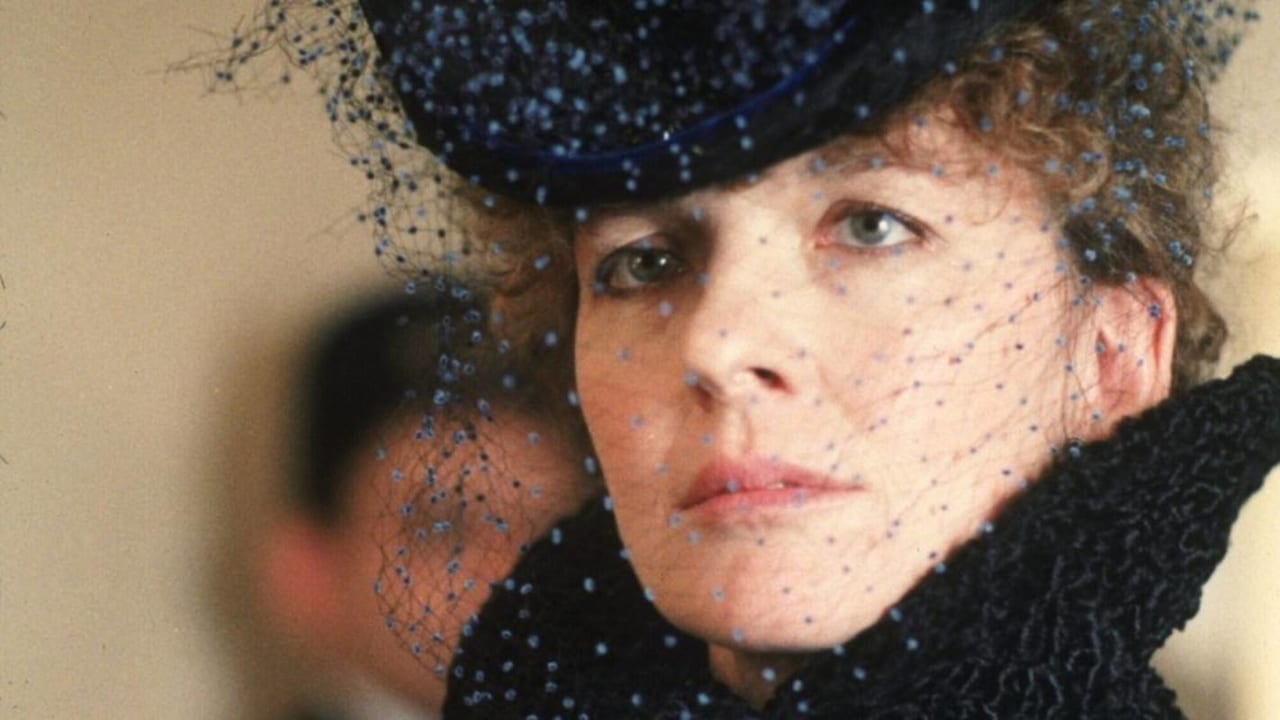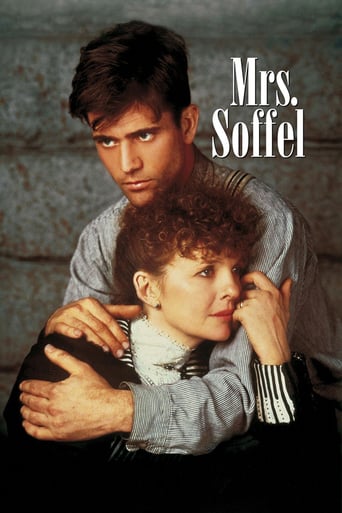

Too much of everything
... View MoreFun premise, good actors, bad writing. This film seemed to have potential at the beginning but it quickly devolves into a trite action film. Ultimately it's very boring.
... View MoreIt's easily one of the freshest, sharpest and most enjoyable films of this year.
... View MoreExactly the movie you think it is, but not the movie you want it to be.
... View Moretouching film. not only for story but for the isle of silence. for inspired acting. and for the flavor of a situation in perfect measure and form. it is not original or a revelation. good actors and correct performance. seductive script and a special lady Bovary. one of promising roles of Mel Gibson and a Matthew Modine with the Streamers dust circle as basic instrument for create his role.after years, important part is aura of film. the dark, the halls, the snow, the tension. and Diane Keaton art to transform the pieces who defines her role in a delicate precise construction. a movie - source of a state of soul. touching, bitter, nice, admirable in a different form. like a large lake in gloomy afternoon.
... View MoreSomewhere between BADLANDS and DEAD MAN WALKING lies MRS. SOFFEL, a time-period melodrama about a warden's Christian wife, played by a wistful Diane Keaton, who, while handing out bibles on death row, gets enamored with a slick, handsome folk hero, a young Mel Gibson soon to be hanged with younger brother Matthew Modine.Whether it's true love, or the fact Gibson's character (who sounds strangely like Eric Roberts) has a way of conning naïve women, the underlying passion between the polar opposites, with the gray prison bars between them, is an engaging buildup to the inevitable escape and, during the final act the trio: Keaton, Gibson and Modine, ride a sled through the snowy winter with Terry O'Quinn's posse on their tail. The romantic aspect is somewhat thin – if Gibson resembled an everyman prisoner, would we have a film at all? But the direction, gorgeous cinematography and apt performances provide a spellbinding combination of style and substance, although there's more of the first than the latter.For More Interviews: http://cultfilmfreakreviews.blogspot.com
... View MoreThis is one of the best American films of the 1980's. It is based on the true story of the wife of the Allegheny County Jail warden, Kate Soffel (Diane Keaton) who falls in love with a sexually alluring working class inmate, Ed Biddle (Mel Gibosn) in turn of the century Pittsburgh and plots to help him and his brother, Jack (Matthew Modine) escape. Director Gillian Armstrong and screenwriter Ron Nyswaner brilliantly decided to deal with the story in an elliptical and indirect way. We aren't telegraphed anything. We don't know if the Biddle's are innocent. We don't really understand why Kate falls in love with Ed. We aren't directly told why Kate is so disappointed in her life. The filmmakers takes this personal story and turns it into a progressive feminist mood poem. It is extraordinary to see a post 1970's American film this complex and this progressive. Diane Keaton gives a remarkably complex and nuanced performance. The film is almost unimaginable with her in the leading role. Early in the film she communicates the torment and longing of Kate in a way that warrants comparisons with the greatest acting of the silent cinema. We see the depression and desperation in Kate's face in a way that rivals Maria Falconetti in Dryer's THE PASSION OF JOAN OF ARC and Lilian Gish in Victor Sjöström's THE WIND and D.W. Griffith's BROKEN BLOSSOM'S. One of the remarkably subversive aspects of the film is its relationship to Kate's Christianity (which becomes particularly pointed watched in the contemporary context and thinking about Mel Gibson's PASSION OF THE Christ fundamentalism). She is a bit scary creeping about the prison trying to sell doomed men on a faith that will set them free. The suggestion is that it is this same faith, or more precisely the way Christianity is used as a structuring device of patriarchy, that has trapped Kate into her own life sentence. When she becomes aroused by Ed everything shifts, she looks different, some kind of remarkable radiance shines forth from Keaton's face. Her bible lessons become a pretext for sexual release. She literally makes love to Ed through the bars with his brother nearby, which adds a remarkable charge of voyeurism to the proceedings. Mel Gibson has never been photographed more sensually then in this film. There is a scene late in the film, in which, he is lying in bed with the sunlight playing on his face that in which his beauty is almost angelic. He's photographed and contextualized the way male directors have often shot young classically beautiful women (think of Julie Christie in David Lean's Dr. ZHIVAGO, Joseph Losey's THE GO BETWEEN, or Donald Cammell's DEMONSEED or Faye Dunaway in Roman Polanski's CHINATOWN or Sydney Pollock's 3 DAYS OF THE CONDOR). Armstong also allows Gibson's sense of humor to peek out to suggest layers to this character. We never totally trust Ed, yet we root for him or at least root for Kate's vision of him.The cinematography by Russell Boyd is exceptionally original and the production design emphasizes the grimy oppressive nature of an industrial town. this was actually a critique of the film at the time of its release. It was too dark, mainstream reviewers said. Well actually its historically accurate. Pittsburgh was so soot filled and grimy that the street lights had to stay on all day long! This is the great environmental tragedy of the industrial revolution. Armstrong uses this look for strong dramatic effect and creates a kind of mood poem here that reminds me of the best work of Antonioni and of Werner Herzog remarkable NOSFERATU. Like in that great film we can never quiet situate ourselves, the oppressive dim look of the film suggests we might be in a kind of waking nightmare. Is the environment part of Kate's psychic and physical affliction? Who could be happy or healthy living in this kind of relentlessly dismal environ? When we finally leave Pittsburgh Boyd and Armstrong present us with some of the most lovingly photographed images of sun and snow in American cinema. The viewer so ready for these brighter images that they alter our the way we connect to the story. That this film was neither a critical nor a commercial success is a tragedy for the contemporary Hollywood cinema. Its failure became one of the many excuses for the overwhelming turn to the banal cookie cutter cinema that Hollywood is known for today. One hopes that cinephiles everywhere will reclaim ambitious films like MRS. SOFFEL as an example
... View MoreThis is a visually beautiful movie bringing the story along in with obvious and subtle references. The title character is a trapped woman. The 'noblesse oblige'of being the warden's wife coupled with her own frustrations and frailties makes her life intolerable. She loves her children; she hates her life. Here, she becomes intrigued by a prisoner in her husband's jail. He appeals to her imagination as well as her sensibility as a woman. She finds a soul-mate in their exchanges as she pretends to read-him-to-reform from bible passages. She flees with him and is willing to die with him to keep from returning to her unbearable life. This is based on a true story. But it is a telling of the story of women, most of whom until the last 25 years or so, had little choice but to marry and to identify themselves in terms of their husbands. Their identity was not their own; their choices had to be appropriate to their marriage station; they were judged by how well they maintained husband's well being and their children's achievements. While much has changed in women's lives, vestiges of the past still do exist. The references to "baking cookies" in the 2004 presidential campaign signals this. Mrs. Soffel represents the lives of women over time. She desperately seeks the love and freedom that her standing in life denies her. This has been a common women's theme.
... View More